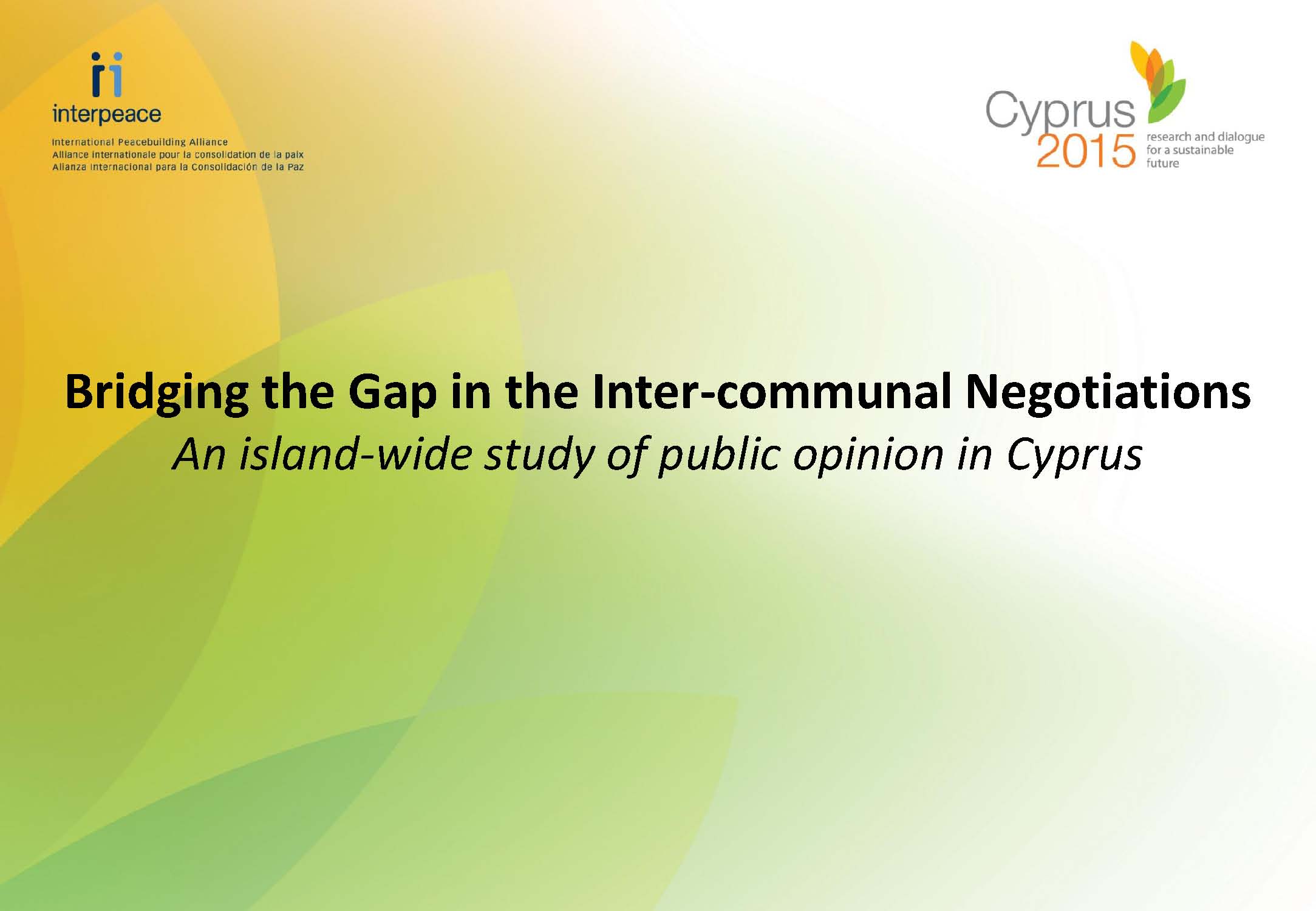Latest Cyprus poll findings: Greek-Cypriot and Turkish-Cypriot leaderships must take bold action now

Interpeace initiative ‘Cyprus 2015’ today releases the latest findings from an island-wide poll involving 1,000 Greek Cypriots and 1,000 Turkish Cypriots.
Download the full presentation of the poll findings
Interpeace initiative ‘Cyprus 2015’ releases latest island‐wide poll results prior to Geneva talks Thursday 7th July 2011. Findings highlight the Greek Cypriot and Turkish Cypriot public must be engaged now for any agreement to be viable.
These recent poll results provide key insights for both the Greek Cypriot and Turkish Cypriot leaderships as they prepare for the next round of negotiations, to be convened by United Nations Secretary‐General, Ban Ki‐moon, in Geneva on Thursday, 7th July, 2011.
As the Greek Cypriot and Turkish Cypriot leaderships continue to discuss the options for the island, the process has become protracted and this latest window of opportunity may be lost. The current state of play is leading to a negative political climate and public discontent. This is also reflected in the trend that undecided voters in the Greek Cypriot community are indicating they are shifting towards a ‘No’ vote for reunification, while Turkish Cypriots are expressing increased ambivalence over what they will vote in a future referendum.
Ahmet Sözen, Turkish Cypriot Co‐director of the Interpeace initiative ‘Cyprus 2015’ commenting on these new findings warns:
“The outcome of a future referendum remains in the balance. The poll findings call for those driving the peace process to reconsider how the process engages the general public. This needs to urgently be re‐appraised in order to avoid the unfortunate outcome of the general public rejecting a solution that has been agreed by the leaders. ”
Spyros Christou, Greek Cypriot Co‐Director of the Interpeace initiative ‘Cyprus 2015’ confirms that:
“There is, however, an opportunity for convergence. Our latest polls show that Greek Cypriots and Turkish Cypriots remain open to a federal settlement. But their opinions clash when it comes to how the issues of security, territory and citizenship should be solved.”
When it comes to the ‘hot’ issues there is limited convergence suggesting the content of the negotiations could be modified slightly in order to increase support in both communities simultaneously. Confidence building measures that have been found, in this and other polls, to have universal appeal could be implemented to increase levels of trust in the peace process and across the island.
Those parameters of the peace talks that the general public do not understand or seem unwilling to accept should be addressed through public information and societal dialogue. Scott M. Weber, Director‐General of Interpeace, confirms:
“These require bold and urgent action at the leadership level to ensure the positive public acceptance needed to make any agreement hold.”
